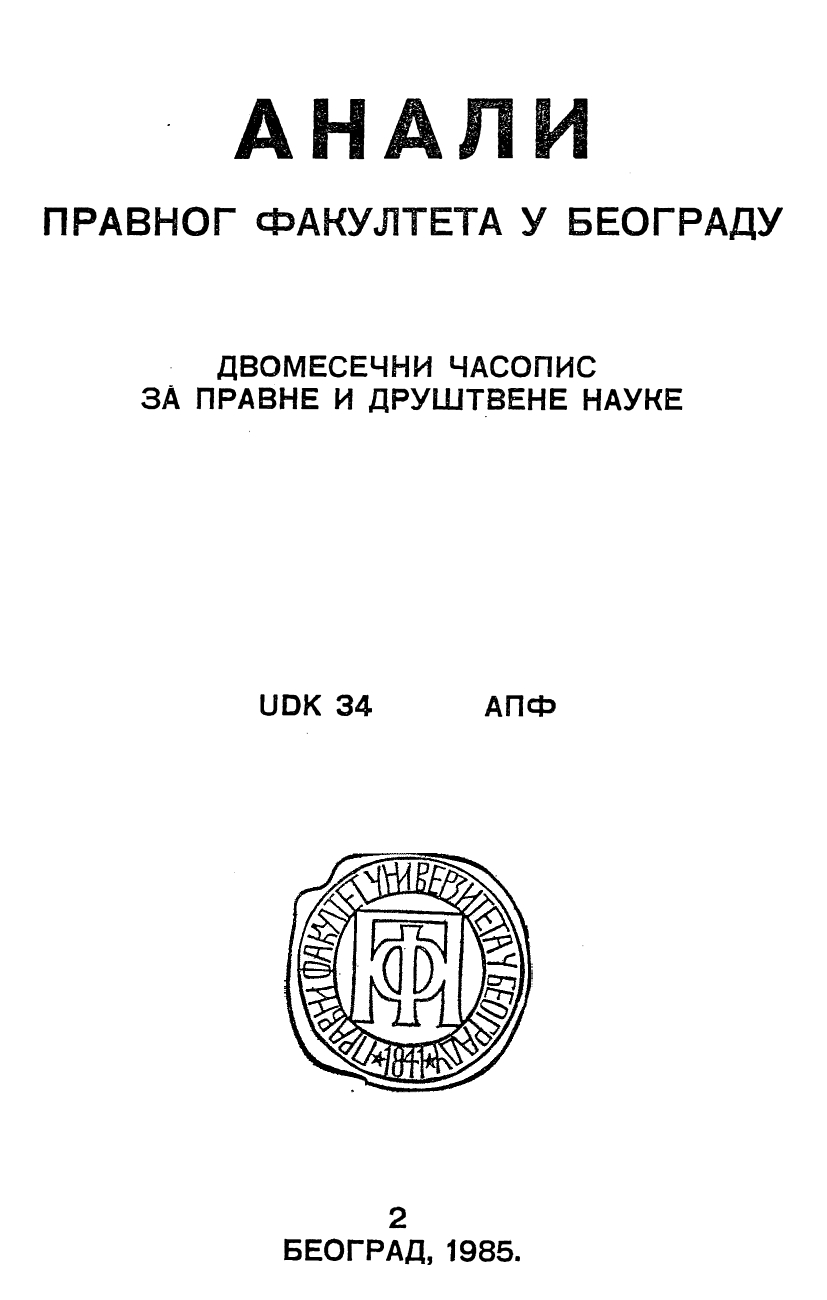СРЕТЕЊСКИ УСТАВ
THE SERBIAN »SRETENJE« CONSTITUTION
— On the Occasion of the Hundred and Fiftieth Anniversary of Its Enacting —
Author(s): Ratko MarkovićSubject(s): Law, Constitution, Jurisprudence, Constitutional Law
Published by: Правни факултет Универзитета у Београду
Summary/Abstract: Following are three legal and social sources of the Sretenje (St. Encounter) Serbian Constitution namely: Sultan’s decrees (hatisherif) of 1830 and 1833; existing or former constitutions of the time of West European monarchies; requests emerging in the Duke Mileta’s rebellion, which directly caused the enacting of the Constitution. Although in the Sretenje Constitution it was proclaimed that state power was distributed onto three divisions (namely, legislature execution of laws, and the judiciary) this provision has not been consequently applied in the process of establishing the organisation of power, since at the time there was a specific confusion of authority in the State Council. That body was a more important factor in the sphere of legislation as compared to the Duke; it shared with him the executory power too while as far as judiciary was concerned, one of its departments was the last instance body (the third instance in fact). The National Assembly as the representative body of the people participated only in the enacting of laws by means of which taxes and duties were determined while other competences of that Assembly did not amount at all to any executing of the state power. The Sretenje Constitution did not lower down the power to the people; moreover, it did not organize the execution of the state power on the principle of people's sovereignty. The most significant functions of the state power according to it are divided by a hereditary duke and by a non-elected and immovable State Council namely a body deprved of any democratic legitimity and membered exclusively by the oligarchic seniors. Greatest democratic significance of the Sretenje Constitution, however, relates to the fact that it submitted the execution of state power under the rules fixed in advance, i.e. the ones of the objective law, eliminating thus the arbitrariness of the protagonists of power and authority. Another democratic element of significance is to be found in the constitutional provision according to which all activities of the people shall be regulated by means of laws, since in this way it is possible to ensure the implementation of principles of the rule of law; as well as in the chapter whose provisions safeguard, first of all, individual and human rights and freedoms.
Journal: Анали Правног факултета у Београду
- Issue Year: 33/1985
- Issue No: 2
- Page Range: 149-160
- Page Count: 12
- Language: Serbian

